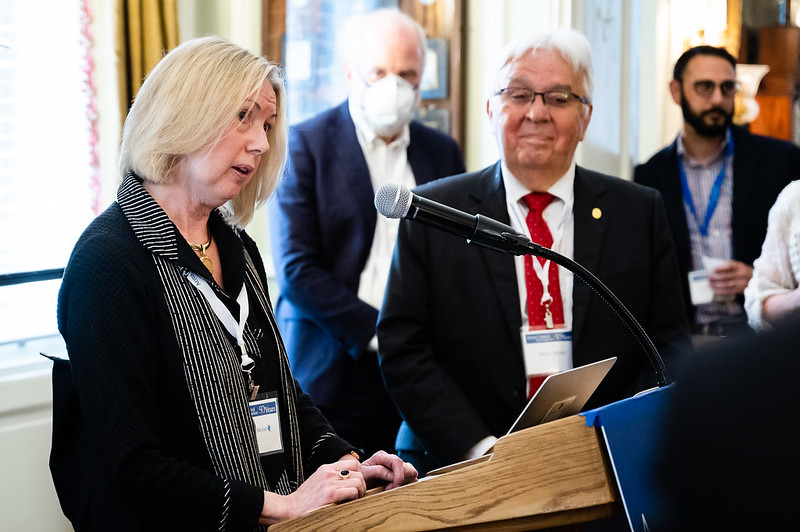Inside the Arms Control Association
June 2022
At our June 2, 2022, Arms Control Association Annual Meeting, our all-star array of panelists and speakers, along with video messages from special guests, underscored the enduring value of persistent smart civil society efforts to deliver information, solutions, and pressure on policymakers to reduce and eventually eliminate the existential threats posed by nuclear weapons.
More than 140 friends and members attended the meeting, which was held at the National Press Club, and more than 400 viewed the live webcast.
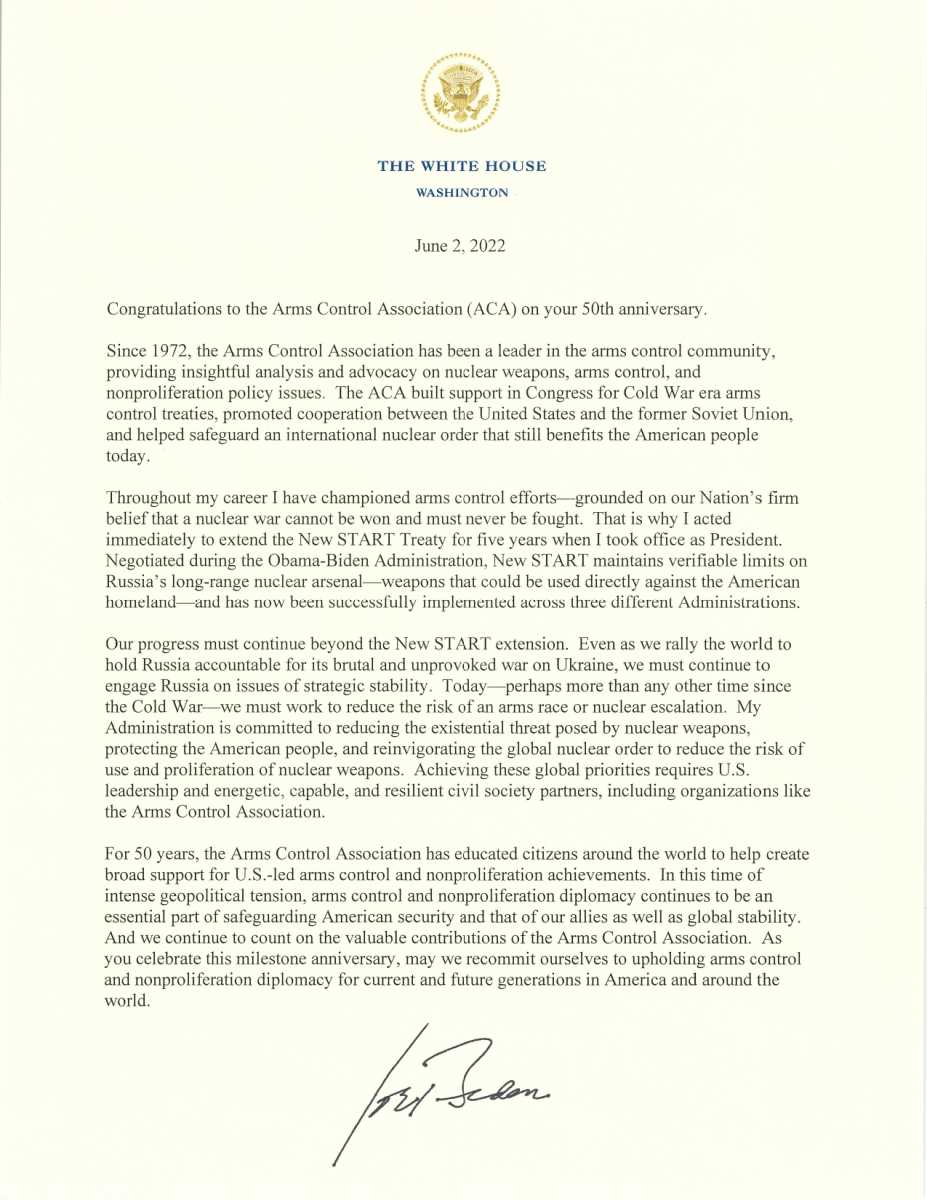 Our discussions made it clear that today we face a daunting array of weapons-related security problems that are as complex and difficult as we have seen at any time in ACA’s history.
Our discussions made it clear that today we face a daunting array of weapons-related security problems that are as complex and difficult as we have seen at any time in ACA’s history.
As President Biden said in his special statement issued on the occasion of ACA’s 50th anniversary: “Today—perhaps more than any other time since the Cold War—we must work to reduce the risk of an arms race or nuclear escalation.”
The president asserted, for the first time since Russia’s full-scale invasion of Ukraine: “Our progress must continue beyond the New START extension. Even as we rally the world to hold Russia accountable for its brutal and unprovoked war on Ukraine, we must continue to engage Russia on issues of strategic stability.”
Assistant Secretary of State Mallory Stewart further elaborated on the administration’s approach in her keynote address at our meeting.
We are deeply honored by the President’s recognition of ACA’s contributions and grateful for his enduring commitment “to reducing the existential threat posed by nuclear weapons, protecting the American people, and reinvigorating the global nuclear order to reduce the risk of use and proliferation of nuclear weapons.”
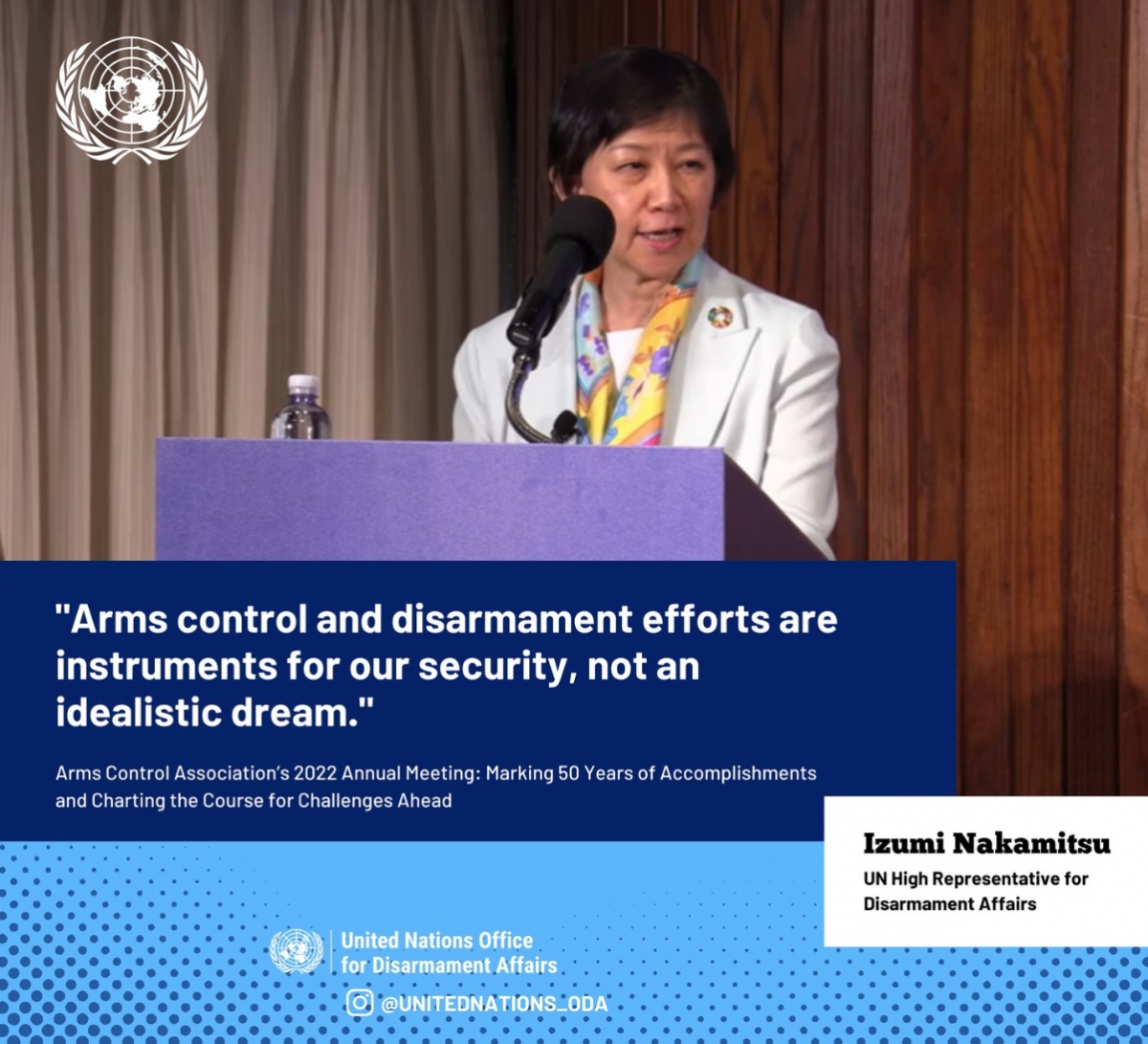 As the war in Ukraine continues, however, the risk of escalation will persist, and talks between the United States and Russia on strategic stability and further steps on nuclear arms control and disarmament remain on hold.
As the war in Ukraine continues, however, the risk of escalation will persist, and talks between the United States and Russia on strategic stability and further steps on nuclear arms control and disarmament remain on hold.
In her keynote remarks, UN High Representative for Disarmament Affairs Izumi Nakamitsu underscored that “arms control and disarmament efforts are instruments for our security, not an idealistic dream.” We agree.
In the coming days, weeks, and months, ACA will be working with our governmental and nongovernmental partners to:
- press for meaningful steps to condemn Russia’s threats of nuclear weapons use
- guard against new and destabilizing weapons deployments in Europe or elsewhere
- restore agreements to hold Iran’s nuclear activities in check and resume talks with North Korea on peace and denuclearization, and
- jumpstart talks on new nuclear arms control arrangements before the U.S.-Russian New Strategic Arms Reduction Treaty expires in early 2026.
Later this month, I will be in Vienna for the first meeting of states-parties to the Treaty on the Prohibition of Nuclear Weapons and will be speaking at the June 20 Conference on the Humanitarian Impacts of Nuclear Weapons organized by the Austrian Government.
In August, our team will be engaging with diplomats at the pivotal 10th Nonproliferation Treaty Review Conference in New York to press for agreement on a serious plan of action to jumpstart progress on disarmament diplomacy.
As President Biden wrote in his June 2 statement: “Achieving these global priorities requires U.S. leadership and energetic, capable, and resilient civil society partners, including organizations like the Arms Control Association.”
With your support and engagement, you can count on ACA to do our part (and more!) to meet the challenges that are before us.
50 Years of Accomplishment
It is very difficult to encapsulate five decades of work for any organization, particularly the Arms Control Association. But we have tried to do so.
This short, 8-minute video captures some key highlights and features of ACA that illustrate why the MacArthur Foundation described us as an “exceptional organization that effectively addresses pressing national and international challenges and [has] an impact that is disproportionate to its small size.”
Our work depends on the generous support of individuals and a handful of loyal philanthropic institutions. Please consider becoming a 50th Anniversary Sponsor to help us tackle the difficult weapons-related security challenges in the years ahead.
11th Hour for the Iran Nuclear Deal
As nonproliferation policy director Kelsey Davenport explains in this new analysis, “the most recent reports from the International Atomic Energy Agency (IAEA) detailing Tehran’s failure to declare illicit nuclear activities from its pre-2003 weapons development effort and the continued growth of Iran’s nuclear program underscore the urgency and importance of restoring the mutual U.S. and Iranian compliance with the 2015 nuclear deal, known as the Joint Comprehensive Plan of Action (JCPOA).”
“Full implementation of the JCPOA,” she notes, “would roll back Iran’s nuclear advances, restore intrusive monitoring, and provide the best possible assurance that Tehran’s nuclear activities are peaceful.”
Adding urgency to the crisis, on June 9, Iran announced it would disconnect key IAEA cameras at its nuclear facilities in retaliation to an IAEA Board of Governors resolution urging Iran to cooperate with the agency. Without those cameras, IAEA Director-General Rafael Grossi warned that the agency would lose “continuity of knowledge” regarding Iran’s sensitive nuclear activities, which he said, could be a “fatal blow” for efforts to restore the JCPOA.
But after more than a year of indirect talks between the United States and Iran, a mutual return to compliance with the JCPOA is being held up over a non-nuclear issue: whether and under what conditions to lift a U.S. foreign terrorist organization (FTO) designation on the Iranian Revolutionary Guard Corps (IRGC).
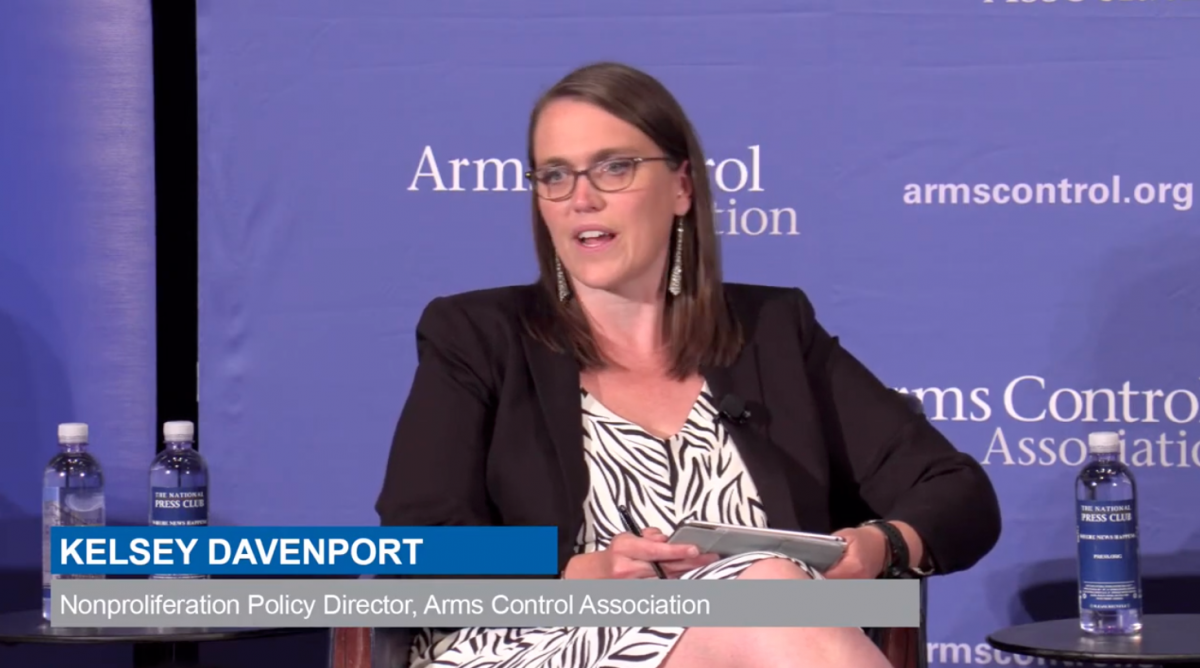 Kimball suggested in an interview with the Tehran Times that one way solve the impasse “would be for the United States to lift the FTO designation on the IRGC and in exchange, for the Iranian government to provide assurances that American officials or citizens will not be targeted by Iranian forces or proxies supported by Iran.”
Kimball suggested in an interview with the Tehran Times that one way solve the impasse “would be for the United States to lift the FTO designation on the IRGC and in exchange, for the Iranian government to provide assurances that American officials or citizens will not be targeted by Iranian forces or proxies supported by Iran.”
Davenport told Agence France Press in a June 6 report, "The political cost Biden will pay for lifting sanctions on the IRGC is high, but it pales in comparison to the threat of a nuclear-armed Iran," Davenport said. She said Biden's administration "should double down on other creative proposals to get negotiations back on track.”
With perhaps less than a month to resolve the impasse, we will continue pressing the White House and others to work harder to find a solution to prevent an even more severe nuclear crisis.
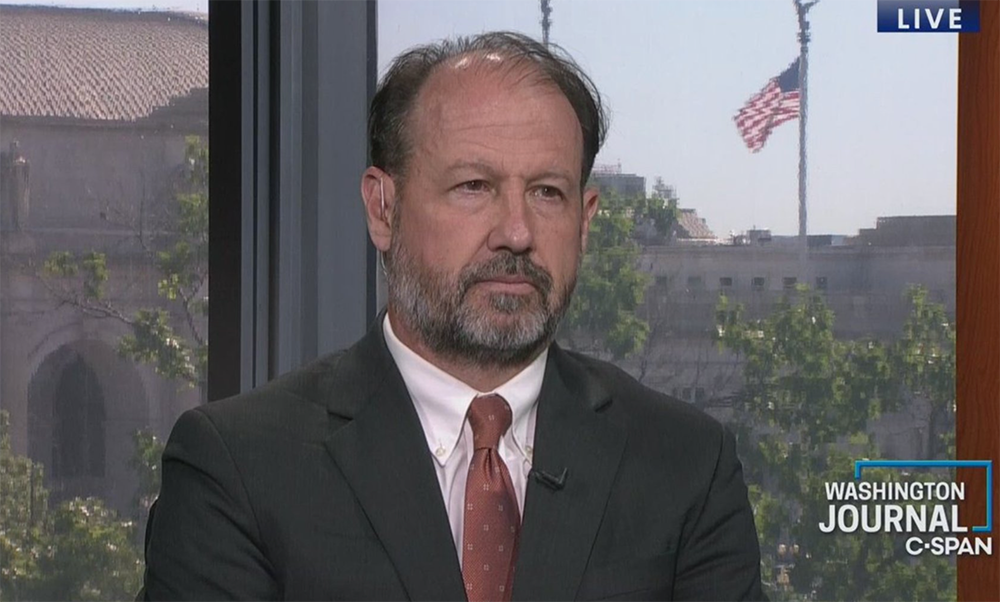 For an excellent in-depth overview of what is at stake, read Barbara Slavin’s article in the June issue of Arms Control Today, “Will Domestic Politics Trump Nonproliferation in Stalled Iran Deal?”
For an excellent in-depth overview of what is at stake, read Barbara Slavin’s article in the June issue of Arms Control Today, “Will Domestic Politics Trump Nonproliferation in Stalled Iran Deal?”
For detailed updates on the latest developments, subscribe to ACA’s “P4+1 and Iran Nuclear Deal Alert” e-newsletter and our other resources, and keep an eye on the latest news reports in each monthly issue of Arms Control Today.
In Solidarity with March for Our Lives
As nuclear, chemical, biological, and conventional arms controllers, we appreciate the value and necessity of regulating the global trade in small arms, as well as the need for commonsense domestic gun control.
The Arms Control Association stands in solidarity with the new wave of support for commonsense measures to stem the epidemic of gun violence in the United States. Many of us will be marching this Saturday, June 11 with other concerned people to call for meaningful and overdue action on the issue. To find a march near you, see: https://marchforourlives.com/march22/
Post-Meeting Reception Honors ACA Alumni
ACA in the News
- Policy director Kelsey Davenport urged that a resolution to censure Iran at the IAEA was "necessary to send a message that there are consequences for stonewalling the agency and failing to meet safeguards obligations" in Al-Monitor, June 6.
- Davenport told Agence France Press that "[t]here is no excuse for Iran's continued failure to provide meaningful cooperation with the agency's investigation,” June 6.
- CBS News cited recent statements from Davenport in “Tense’ meeting on Iran nuclear program starts at IAEA as Islamic Republic’s enriched uranium stockpile grows,” June 6.
- Executive director Daryl Kimball warns that a nuclear response to Putin’s war in Ukraine “would only lead to escalation” in Responsible Statecraft, June 2.
- In an extensive interview published in the Tehran Times, Kimball said the “Delay in restoring the JCPOA is extremely regrettable,” June 1.
- Kimball is quoted as noting the war in Ukraine shows the urgency of nuclear arms control in the lead editorial in the June issue of Scientific American magazine: “To Prevent Nuclear Annihilation, Resume Negotiations Immediately,” June 1.
- In an NBC News report, Kimball warned that the time it takes Iran to develop enough highly-enriched uranium for a nuclear bomb can now “be measured in days, not months or weeks,” May 31.
- "Biden must bite the bullet on Iran," argues ACA nonproliferation policy director Kelsey Davenport in a commentary published by Chatham House, May 27.
- Business Insider quoted data from an Arms Control Association factsheet in “Coup against Putin would be triggered if one of his top officials refused to carry out a nuclear strike, Bellingcat expert says,” May 23.

